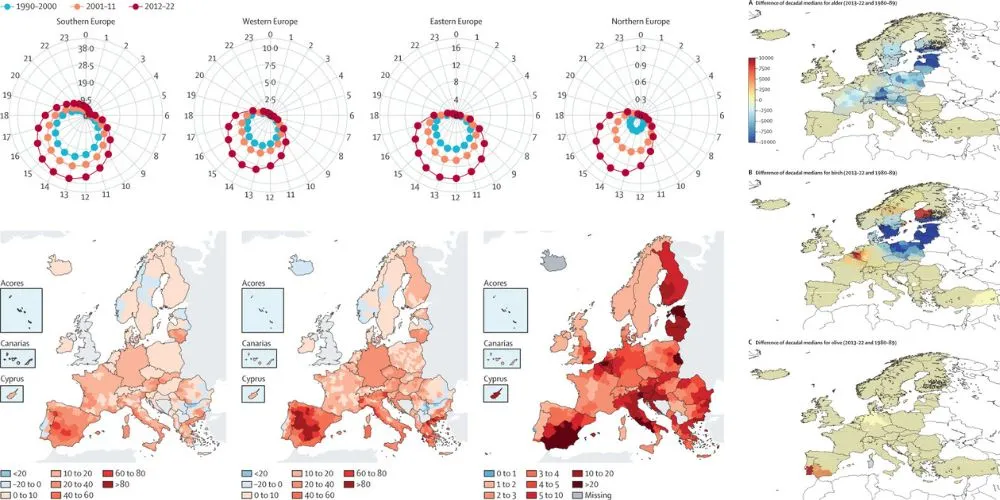Key Points:
- Global warming is increasing heat-related deaths and spreading disease-carrying ticks and parasites in Europe.
- Women are more affected by heat-related mortality due to physiological differences and longer lifespans.
- Warmer temperatures enable the spread of Leishmania infantum and Ixodes ricinus, increasing the incidence of related diseases.
- There has been a significant increase in studies on climate change and health, but a gap remains in addressing equity and justice issues.
According to a comprehensive report, global warming is significantly impacting human health, exacerbating inequalities, and promoting the spread of disease-carrying ticks and parasites across Europe. The study, published in Lancet Public Health, reviewed hundreds of studies on the health impacts of climate change in Europe, highlighting the urgent need for drastic action.
Rachel Lowe, a climate and health researcher at the Barcelona Supercomputing Center and the Catalan Institution for Research and Advanced Studies, and her colleagues tracked 42 indicators, including heat-related deaths, the spread of infectious diseases, and research trends. Lowe emphasized the necessity for European countries to take significant measures to protect populations from the health impacts of climate change.
Ana Raquel Nunes from the University of Warwick noted the alarming increase in mortality and morbidity linked to rising temperatures and climate-sensitive diseases. Researchers stressed the importance of a holistic approach to studying the climate-health nexus, as multiple exposures affect the population simultaneously.
The report estimates that from 2003–12 to 2013–22, heat-related mortality increased by an average of 17 deaths per 100,000 people per year across Europe, with a higher increase among women compared to men. Gender disparities in heat-related mortality may be due to differences in heat dissipation and maximum sweat rates, as well as women’s higher body temperature post-ovulation. Additionally, women generally live longer than men and older individuals are more vulnerable to heat stress. Many older people live alone, further increasing their risk.
Warmer temperatures enable the spread of disease-carrying parasites and ticks into new regions. The single-cell parasite Leishmania infantum, transmitted by sandflies, is becoming more widespread. It causes debilitating skin ulcers, fevers, and potentially fatal swelling of the spleen and liver. The study found that warmer and humid conditions have allowed sandflies and their parasites to expand northward.
Additionally, Europe has become more suitable for the tick Ixodes ricinus, which can transmit diseases like Lyme disease and tick-borne encephalitis. These diseases cause symptoms ranging from flu-like illness to severe neurological and cardiovascular complications, resulting in significant healthcare costs and long-term disability.
The number of studies on the intersection of climate change and health in Europe has surged, with hundreds of papers published between 1991 and 2022. Most studies focus on how global warming affects health, greenhouse gas emissions from healthcare systems, and protective measures against climate change impacts. However, only about 2% of studies in 2022 addressed issues of equality, equity, or justice, highlighting a research gap. Understanding which populations are disproportionately affected is crucial for effectively responding to climate-related health impacts.





